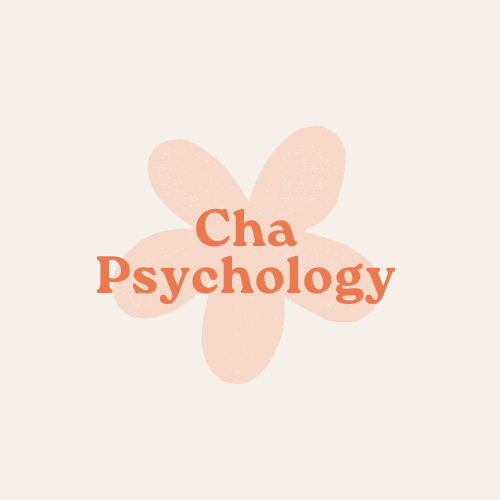5 Books Changing How I Think About Mental Health in 2025
Hanging Out: The Radical Power of Killing Time by Sheila Liming
Liming starts the book with an explanation of the several challenges we face in contemporary society in creating and maintaining a social ties. Her explanation includes a critique of how digital life and neoliberalism have diminished human interactions, leading to widespread loneliness and alienation. Liming encourages us to reclaim unstructured socializing as a way to meaningfully connect with others. One emphasis that I believe is really important is the idea that we need to stay with and push through friction, tension, and conflict in our social connections in order to have meaningful relationships; that we can in fact have meaningful relationships with people who may not think about everything the same way we do. Liming’s main argument for “killing time” is that it is a subversive act against efficiency that fosters community and has the potential to re-humanize us. I will think about this booing in line at the grocery store.
The Burnout Society by Byung-Chul Han
Byung-Chul Han is a philosopher and cultural theorist who dialogues with Kant, Nietsche, Hannah Arendt, and others, to analyze the widespread exhaustion, depression, and burnout we are all experiencing. His explanation for these conditions is that our society has shifted from a “discipline society” to an “achievement society.” Rather than feeling that our lives are circumscribed by rules passed down to us by powerful external entities, we now imagine that we must continually self-optimize. The ethos of this society is “Yes we can,” which sounds optimistic and cheerful (and reminds us sad Americans of the golden age of Obama), but on a personal level, this devolves into “I can and therefore if I haven’t, I have failed/lost.” Or at least that’s my understanding of it. My foundation in Western philosophy is not nearly good enough to grasp all the arguments Han is making, but I still find this book engaging and compelling. Its main ideas resonate deeply, especially because they show up in my work everyday. My caseload is comprised almost entirely of people who are stuck in self-flagellation. I’ll be recommending this book to clients who can benefit from understanding the bigger societal conditions that impact their emotional well-being.
Doppleganger by Naomi Klein
This book is partially a memoir and partially a cultural critique, a combination that I thought was riveting. It’s a fascinating examination of how Naomi Klein’s doppleganger, fellow writer and thinker Naomi Wolf, transitioned from being a feminist and progressive activist to being an anti-vaxxer and conspiracy theorist. Klein discusses the role of digital platforms and algorithmic content in shaping our identities, and points out we are all being shaped in similar ways through our digital entanglements. The way she weaves in Freud in this book is really engaging too. I learned so much about the concept of “the double” and how it reflects our anxieties. From a mental health practice perspective, it was important for me to think through the potential impact of algorithmic content in perpetuating anxiety, depression, low self-esteem, loneliness, and paranoia. Reading this book coincides with a relatively new intervention for me, which is asking, “What is your media diet like these days? What apps are you using?” Every time I’ve asked this question, it led to a productive and thoughtful discussion about device use.
The Anxious Generation by Jonathan Haidt
This book examines the mental health crisis among adolescents. Although I don’t work with adolescents in my practice, some of my clients are parents of adolescents struggling with their children’s mental health. And in just a few years, the folks who are adolescents now will be my adult clients. This is a heavily researched book from a thorough and exacting social psychologist. The gist of his argument is that our society has shifted from providing a “play-based childhood” to a “phone-based childhood “starting in the early 2010s. The impact this has had on children is that it has disrupted multiple developmental processes and this has led to skyrocketing rates of depression, anxiety, and suicide among teens. The main harmful disruptions he details in the book are sleep deprivation, social deprivation, cognitive fragmentation, and addiction to digital devices. Although the research is focused on adolescents and their still developing brains, I find many of the same problems in adults as well. I am myself suffering from cognitive fragmentation due to device use. It is a struggle to think deeply and to concentrate for longer periods of time. This book emphasized for me the importance of exercising my agency with apps and devices so that I can spend time and effort on other pursuits, such as reading, resting, socializing.
Atlas of the Heart by Brene Brown
This book “maps” 87 emotions and experiences to create a framework for understanding human connection. My clients know I’m a big fan of the Feelings Wheel and this book is like a deluxe, research-backed taxonomy of feelings. Brown discusses the power of naming specific emotions, which is a practice that enables greater self-awareness and better communication with the most important people in our lives. Brene Brown is known as the “vulnerability lady,” and in true form she argues that vulnerability is “the birthplace of innovation and change” because there is no resilience without tapping into one’s vulnerability. What I really needed from this book at the time I read it was the section on positive emotions, which are all too fleeting. Brown suggests intentionally using feelings like awe and gratitude to reclaim some of those positive experiences and feelings that fade all too fast.

